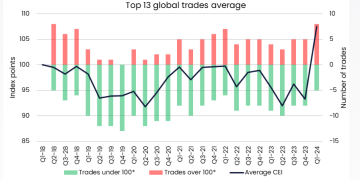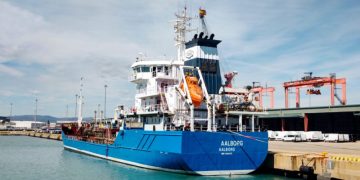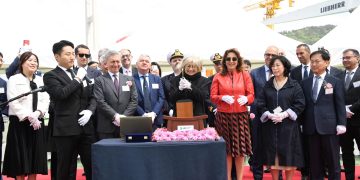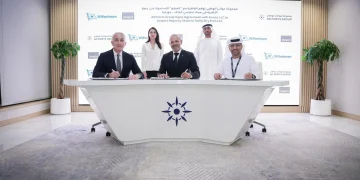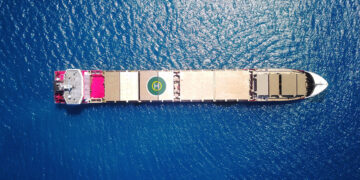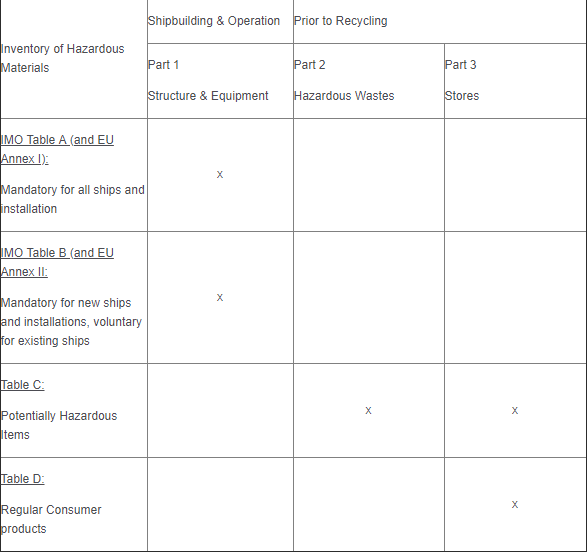North P&I Club describes the new European Union (EU) regulations that mandate vessels flying the flag of an EU state can only be scrapped in approved ship-recycling facilities. Outside the EU, some countries have already signed the Hong Kong Convention for the Safe and Environmentally Sound Recycling of Ships, which apply 24 months after it is fully ratified.
As John Southam, Executive (Loss Prevention), North P&I Club, says, both regulations require ships to have an Inventory of Hazardous Material (IHM) which is approved by their Flag State.
[smlsubform prepend=”GET THE SAFETY4SEA IN YOUR INBOX!” showname=false emailtxt=”” emailholder=”Enter your email address” showsubmit=true submittxt=”Submit” jsthanks=false thankyou=”Thank you for subscribing to our mailing list”]
This is a list of hazardous materials that are part of the vessel’s structure and equipment, operationally generated hazardous wastes and stores on board.
The following table, created by GSR Services GmbH, presents the requirements for new and existing vessels:
However, the shipping industry is worried that this may be difficult to achieve. Namely, some actors stated that there is no mandatory instruction on how to draft IHM and what it must include. This could have significant affects during future port state control (PSC) inspections.
North Club notes that there are some differences between the IMO and regional regulations, as the EU regulations have two further substances in comparison to the IMO tables. These are the Perfluorooctane sulfonic acid (PFOS) and Brominated Flame Retardant (HBCDD).
The compilation of the IHM for new builds may be more simple for the shipowner as the shipyard is responsible to provide the necessary approved documentation. However, for existing vessels, creating the IHM will be more difficult and time-consuming, according to a scheme of inspections and sampling.
Given that all vessels calling at an EU port must have an IHM by 31 December 2020, demand for services to assist in this process will be high. IHM consultants are advising shipowners not to leave this process to the last minute
Mr. Southam concludes.





